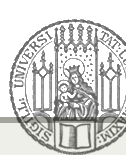

ProjectTeamCooperationsFunded byPhoto CreditsResources and LiteratureUser ManualMIGRAVisualizationsMigration 1870–2018Lifelong migration by personRabbinical SchoolsTimelinesFamily treesAdditional VisualizationsAdditional Research OptionsLibrariesArchivesNewspapers and PeriodicalsDatabasesMonographsArticlesEdited VolumesPublications from other Projectsin the MediaUC 2025 CincinnatiAGJS 2025 Sankt PöltenAJA 2025 CincinnatiMIRA 2025 MünchenCCAR 2025 CincinnatiSPP DFG 2025 BonnGSA 2024 AtlantaMIRA 2024 FürthMIRA 2023 New YorkMeetingsMembersCallShare-A-StoryLegal NoticeLoginPrivacy |
| |||
 |